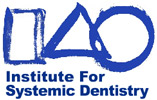Problematic teeth—whether they are cracked, damaged or decaying—can be painful and in some cases, can make it hard to look your best.
Are zirconia dental implants the answer? That depends on your unique situation.
In many cases, your dentist will be able to use relatively simple solutions to address problematic teeth. For instance, if you have tooth decay, a filling may be the answer.
If your dentist does need to extract the damaged tooth, implants are often an excellent solution. However, they are not ideal for every patient. Your dentist will consider factors like the location of the tooth being replaced. If your damaged tooth is in the back of the mouth, where much of our chewing is done, there is a higher risk of implant failure. In order to have success with an implant, you may need to be fitted for a mouth guard to protect the implant from the pressure of daily chewing.
Patients who smoke also experience a higher rate of implant failure. If you aren’t able to quit smoking, your dentist may recommend other ways to address a missing tooth or tooth that needs to be extracted.
If implants are a good solution for you, it will be important to work with your dentist to select the right material. Many patients do well with ceramic dental implants, also known as zirconia implants, because they are biocompatible. Our practice does what is called bioenergetic testing to help determine the right material for each patient.
So what are your other options? One alternative to an implant is a root canal. This seals the main nerve trunks of the dental nerve. The dentist removes the nerve from the root system and seals the space with gutta percha, an inert material. Then the dentist adds a post-core to prevent root fracture. Finally, the dentist will add a crown to keep the tooth from fracturing.
Some patients prefer getting a bridge. This is when a dentist joins three or more crowns together.
Ultimately, the right solution for your problematic teeth is one that reflects your unique situation. Our practice believes in collaboration with patients, so we encourage you to share any information you think is relevant to your case. No matter what solution you opt for, we want you to be happy with the results.








